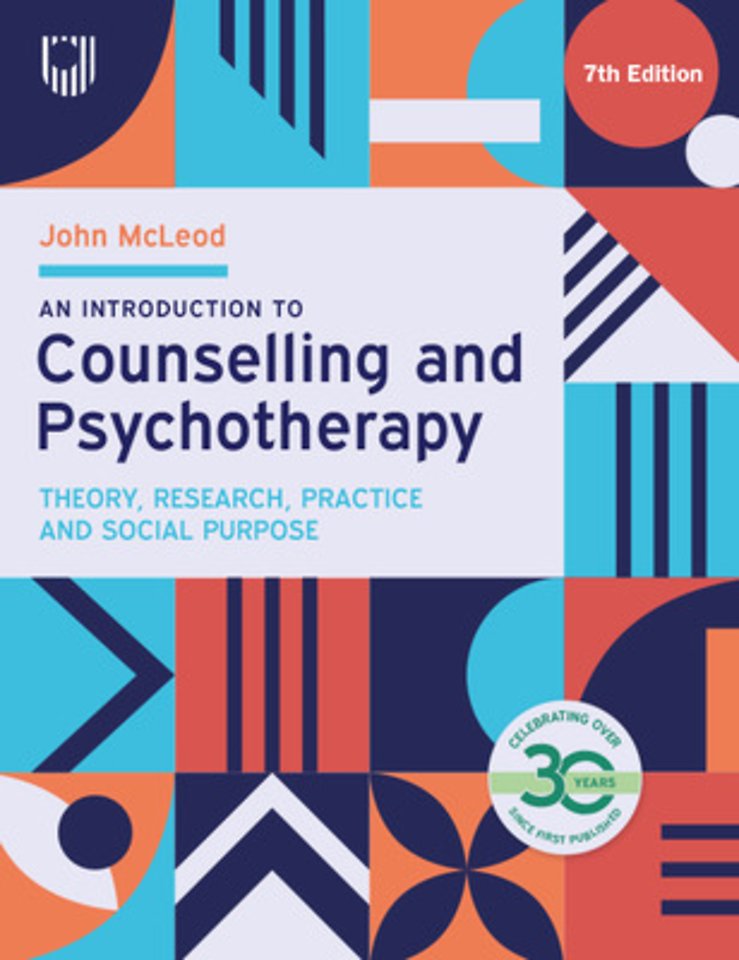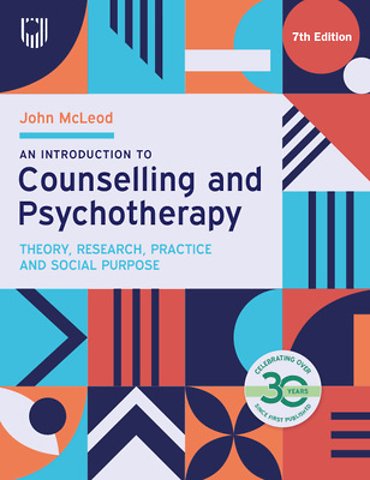An Introduction to Counselling and Psychotherapy: Theory, Research, Practice and Social Purpose, 7th Edition
Samenvatting
“I urge you to buy this book… One of the best overviews of the philosophy, principles, theories, research and practices of therapy that I have ever read... This book should be read by both beginning and fully qualified therapists – and importantly, by all those involved in designing and delivering training programmes for counsellors and psychotherapists.”
Professor Charlotte Sills, Ashridge Business School, Metanoia Institute, UK
“If you have been searching for a contemporary book that offers a comprehensive overview of counselling and psychotherapy in straightforward manner whilst also engaging with underlying debates and research evidence, then you have just found it! I highly recommend this book for every counselling and psychotherapy trainee and for seasoned practitioners alike.”
Dr Divine Charura, Professor of Counselling Psychology, York St John University, UK
“The brilliance of a book such as this one, a uniqueness which sits alongside its longevity and numerous editions, is that McLeod’s work recognises that counselling and psychotherapy, that the work we do with the wide range of clients we meet, is a constantly growing field…A brilliantly worthy addition to this ever-expanding universe which is our profession.”
Dr Dwight Turner, Course Leader, Humanistic Counselling and Psychotherapy, University of Brighton, UK
John McLeod’s accessible bestseller provides a comprehensive, research-informed overview of the theory and practice of counselling and psychotherapy. Now in its seventh edition, this leading introduction to the discipline has been expanded to include a renewed focus on social justice, the use of technology in therapy, non-Western traditions, socio-political and decolonising perspectives, and working with clients who are considering taking their own lives.
The book retains its comprehensive coverage of both mainstream and emerging approaches to therapy, and professional issues such as supervision, training, therapist development, ethical standards, and research-informed practice. New to this edition is wider coverage of issues such as racism, the climate crisis, gender, and sexuality; debates around neuroscience, spirituality and integrative approaches to therapy; and third-wave transdiagnostic cognitive behavioural therapies such as ACT, mindfulness, and FAP.
Fully revised and updated throughout, the seventh edition also contains:
Access to complementary online resourcesCase studiesLandmark and contemporary research studiesCritical analysis of the cultural, historical, and social context of therapeutic approachesReflection and discussion topicsSuggestions for further readingThis book equips readers with the confidence to navigate and apply a range of therapeutic models. Building on the author’s significant research and professional experience, the 7th edition of An Introduction to Counselling and Psychotherapy remains the definitive guide for students and practitioners.
John McLeod has extensive experience as a counsellor, psychotherapist, supervisor, educator and researcher. He is currently Professor of Counselling at the Institute for Integrative Counselling and Psychotherapy in Dublin, Ireland, and has held similar roles at universities in England, Scotland, Italy, New Zealand, and Norway. His publications include the following books with Open University Press: Counselling Skills: Theory, Research and Practice, Embedded Counselling in the Helping Professions: A Practical Guide and Personal and Professional Development for Counsellors, Psychotherapists and Mental Health Practitioners.
Specificaties
Inhoudsopgave
Net verschenen
Rubrieken
- aanbestedingsrecht
- aansprakelijkheids- en verzekeringsrecht
- accountancy
- algemeen juridisch
- arbeidsrecht
- bank- en effectenrecht
- bestuursrecht
- bouwrecht
- burgerlijk recht en procesrecht
- europees-internationaal recht
- fiscaal recht
- gezondheidsrecht
- insolventierecht
- intellectuele eigendom en ict-recht
- management
- mens en maatschappij
- milieu- en omgevingsrecht
- notarieel recht
- ondernemingsrecht
- pensioenrecht
- personen- en familierecht
- sociale zekerheidsrecht
- staatsrecht
- strafrecht en criminologie
- vastgoed- en huurrecht
- vreemdelingenrecht

